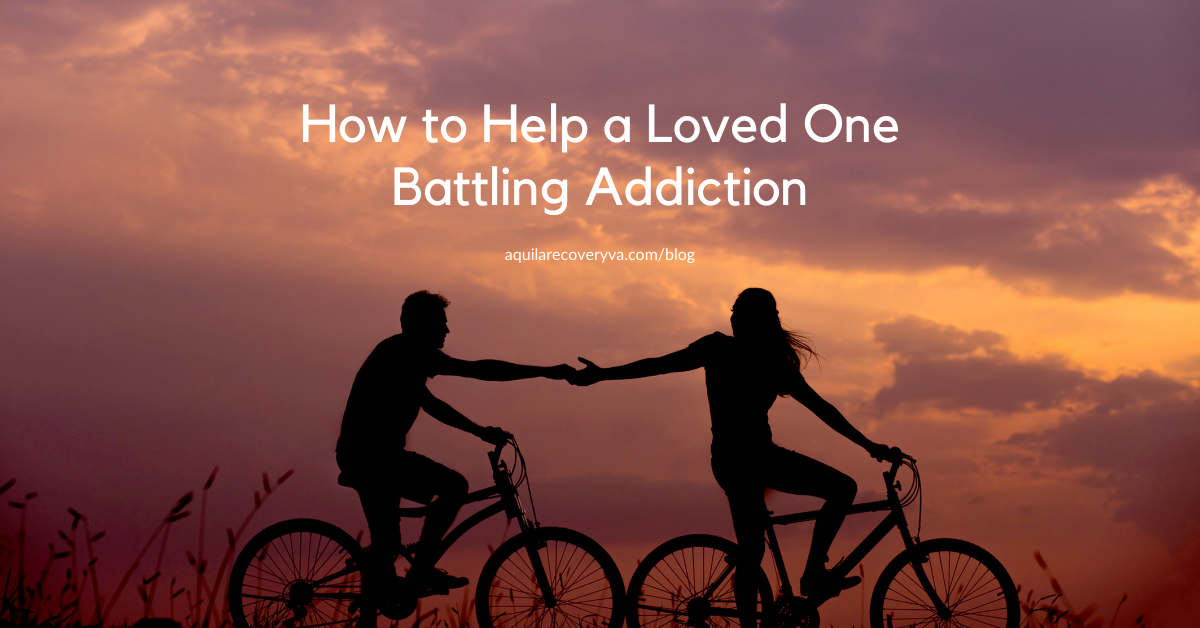April is Alcohol Awareness Month
Reducing the stigma associated with alcohol use disorder, the National Council on Alcoholism &...

It’s no secret that addiction does not only affect the person with a substance use disorder, but their loved ones as well.
If someone you love is struggling with a substance use disorder, you may find yourself wanting to help, but unsure of how to go about it. In some cases, when a loved one tries to help, they end up becoming codependent, which can lead to self-destructive behavior.
However, it’s possible to take care of your loved one without becoming codependent and without condoning their addictive behavior. Aquila also offers a number of addiction treatment programs for families and addiction recovery resources to help someone struggling with the mental and physical effects of substance abuse.
Addiction and shame tend to go hand-in-hand, and your loved one is likely already feeling plenty of shame on their own. The reality is that shaming someone does not change their behavior - it actually does more harm than good, and your loved one may end up turning to a substance to help them cope with the deep shame they are feeling. Shaming them can also drive a wedge between you and your loved one, which may cause them to become defensive and reluctant to come to you for support.
If you’ve never been exposed to addiction before, now is a good time to learn about it. Addiction is a complex disease that alters the brain’s chemistry - it is not a moral failure. Addiction affects the frontal cortex of the brain which affects one’s impulse control and judgment. Continuous substance use over an extended period of time can cause the person to feel that they need to take the substance just to feel normal. There are resources and support groups available to help you answer any questions that you have and this information can help explain why your loved one is acting the way they are, and how you can help them more effectively.
No one likes to be defined by their negative behaviors and habits. Remember that your loved one is human, and they are so much more than their addiction. Your loved one did not mean to become dependent on a substance, and they aren’t trying to let you down or hurt you, so try not to take it personally when they continue to drink or use substances. Of course, "addicted individuals are still accountable for their actions, but they are much less able to override the powerful drive to seek relief from withdrawal provided by alcohol or drugs" (Very Well Mind). Giving up an addiction may seem as simple as just quitting, but it is not just a matter of willpower, and it won’t happen overnight. Understanding this can help you realize that this is a medical condition, and it should be treated as such.

Compassion means to not only be sympathetic, but to actually suffer with the person, and desire to relieve their suffering. Whether they admit it or not, your loved one is suffering, and they need to know that you are there for them. Try to see it from their perspective, and consider how their substance dependence is affecting them. Being compassionate towards someone shows that you see them and their pain, and it validates their suffering. Most of all, it shows them that you care, and that you want to help them get better.
In the process of helping your loved one, don’t neglect yourself of the care that you need. You also deserve comfort and healing for the suffering that you have endured as a result of your loved one’s addiction. Although it can be easy to pity ourselves in these situations, self-pity is an ineffective form of healing, but self-compassion can lead to healthy, proactive behavior. Self-compassion means that you acknowledge and understand your own suffering; being kind to yourself, and giving yourself grace, rather than dwelling on your bitterness and victimizing yourself. After all, if you don’t have compassion towards yourself, how can you show compassion to your loved one? You may also want to consider seeking help for yourself, whether through therapy or a support group, to help you navigate your situation. You do not have to carry this weight all on your own.
If you need support for yourself or your loved one, please reach out to us. We can provide you with the help and resources you need to overcome this difficult time.
Reducing the stigma associated with alcohol use disorder, the National Council on Alcoholism &...
Codependency is not uncommon for those who are in a relationship with or have a close loved one who...
A high-functioning alcoholic may be able to work, socialize and participate in activities without...